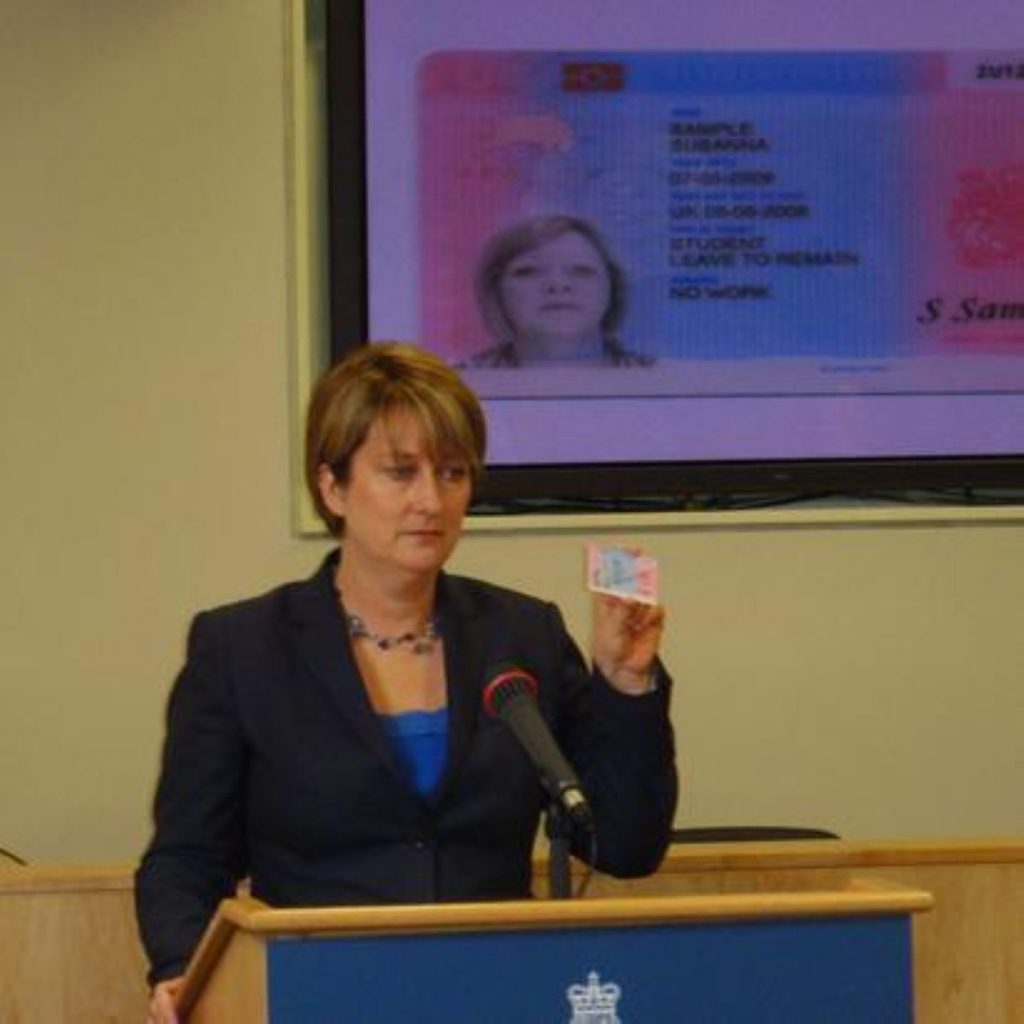ID cards: Manchester will be the guinea pig
By Ian Dunt
The Home Office will pilot test the ID cards scheme in Manchester, Jacqui Smith announced today.
Residents will be able to apply for an ID card this autumn, before the rest of the country in 2012.
The decision marks a sense of increased momentum among government officials, after various ministerial statements indicated the project could become a victim of cutbacks.


Figures released today by the Home Office show cost estimates have increased by £160 million in six months, but the figure excludes costs to business, the public, or any part of government other than the Home Office.
It is a forward-looking estimate only and therefore ignores the £250 million already spent on the scheme.
Liberal Democrat shadow home secretary Chris Huhne said: “It is crazy to fritter away billions of pounds on an unnecessary and intrusive ID card scheme during the biggest crisis in public finances for a generation.
“It shows just how out of touch ministers are that they think charging people through the nose to invade their privacy is acceptable.”
The Home Office is already in talks with high street retailers to provide the biometric cards – or information to biometric passports.
“The companies interested in working with us to deliver the service will play a key role in ensuring the public can apply for an ID card or passport simply and easily,” the home secretary said today.
“While private companies will clearly benefit from the increased footfall from offering this service, their customers will benefit from being able to quickly provide their biometrics while they are out doing the shopping.”
But opposition parties – both of which oppose the plans – said it was time for Ms Smith to let the £5 billion scheme go.
“The government is split down the middle on ID cards but it looks as if Jacqui Smith is carrying on regardless,” said shadow home secretary Chris Grayling.
“Piloting the scheme in one city is nonsensical and will only serve as a tax on the people of Manchester.
“They should abandon this farce and scrap the whole scheme.”
Phil Booth, national coordinator of NO2ID, said: “Five years in, the admitted Home Office costs are over £5 billion – and they’re suspiciously silent on fees. Anyone who registers now has been conned into signing away their privacy for life and giving the government a blank cheque.”
Late April saw a surge of non-committal responses from government officials over the scheme. Asked at the Institute of Directors conference is he supported the cards, chancellor Alistair Darling appeared to row back on government support.
“ID cards are an interesting point because the lion’s share of the expenditure is going on biometric passport,” he told Sky News.
“Your old conventional bog-standard passport was okay but it was not too difficult to improvise, shall I say. The biometrics means that it’s very much more difficult. That is the bigger cost.”
The former home secretary David Blunkett appeared to contradict years of positive statements on the issue by suggesting the overall goals should be transferred to biometric passports.
Asked whether ID cards could be dropped, he told the BBC: “I think it is possible to mandate biometric passports.
“Most people already have a passport but they might want something more convenient to carry around than the current passport and may be able to have it as a piece of plastic for an extra cost.”
Plans to combine passport biometrics and ID cards – confirmed by recent contracts with IBM and US computer company CSC – will make it far more difficult for the Tories to scrap the scheme if they attain power.
Downing Street took advantage of this, saying that “the idea you can suddenly save billions of pounds for the taxpayer” without scrapping biometric passports as well was unrealistic.
“The suggestion you could save the £5.3 billion… that could be magically found from scrapping ID cards is clearly not the case if you decide to keep biometric passports,” the prime minister’s spokesman said.
On Monday, the British Airline Pilots’ Association (Balpa) announced a legal challenge to Home Office plans to trial the scheme on ‘critical’ airside workers.
The government said the £18 million scheme was voluntary, but pilots are incensed they will be unable to qualify for a vital ‘airside pass’ without a card.









